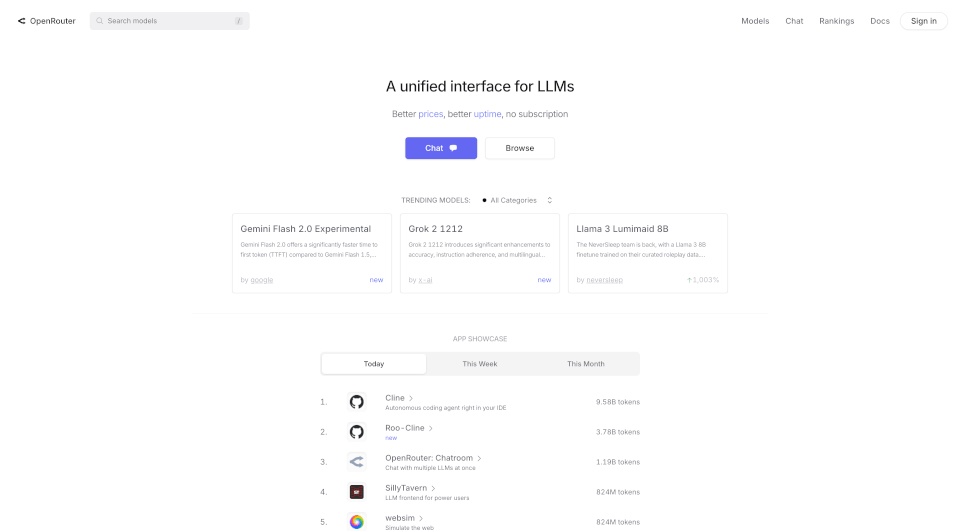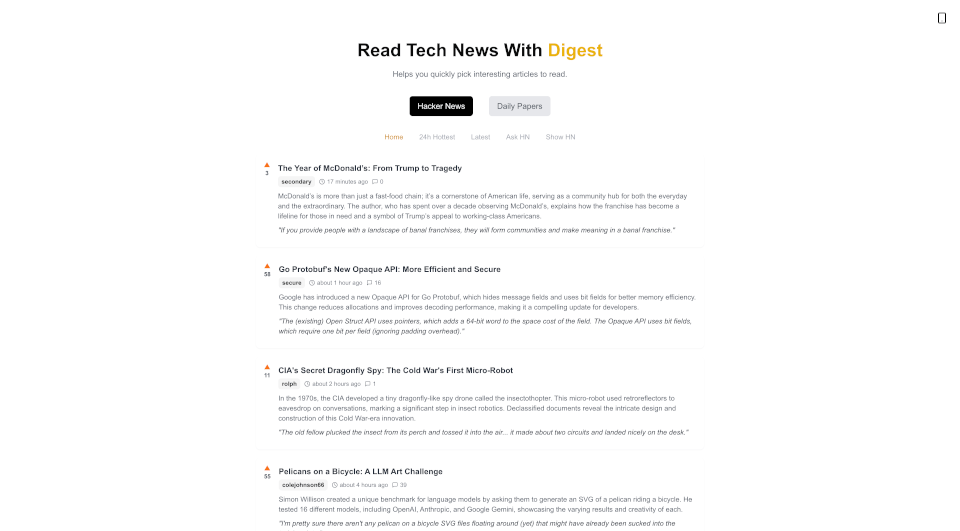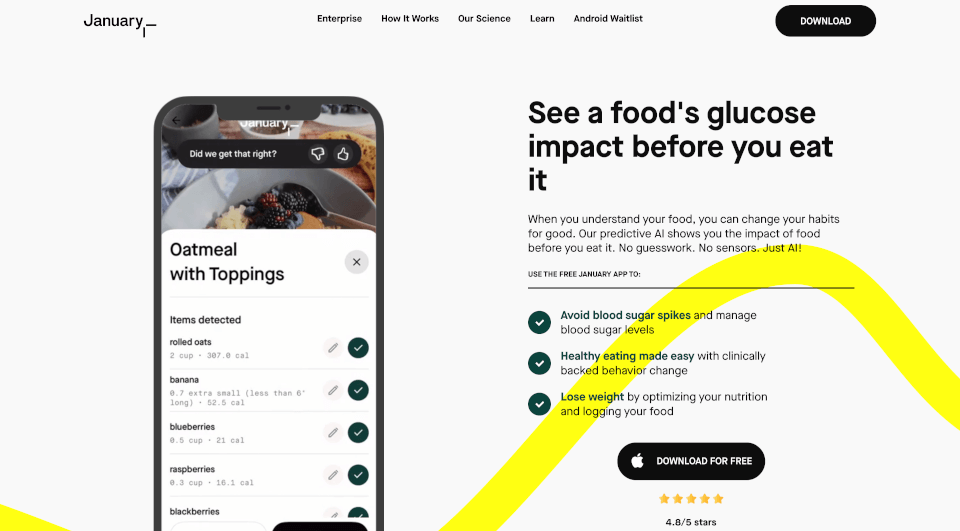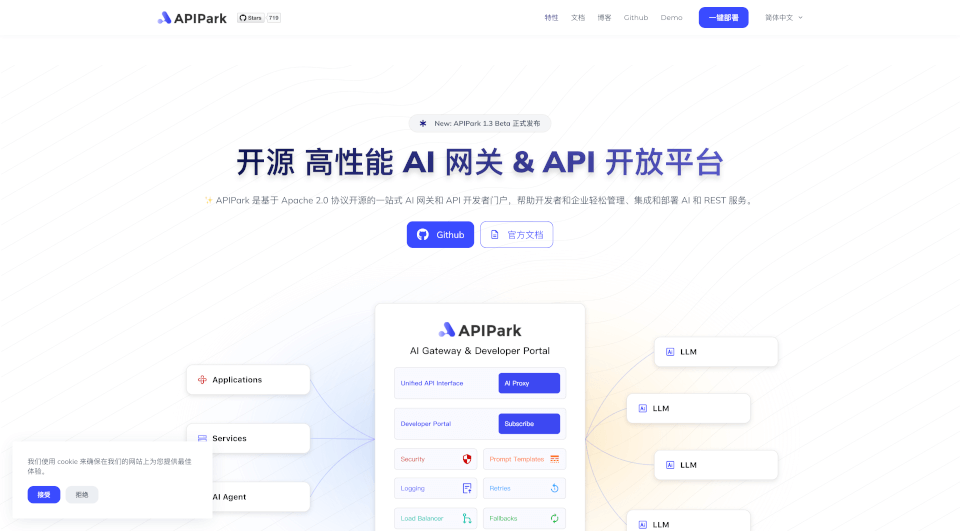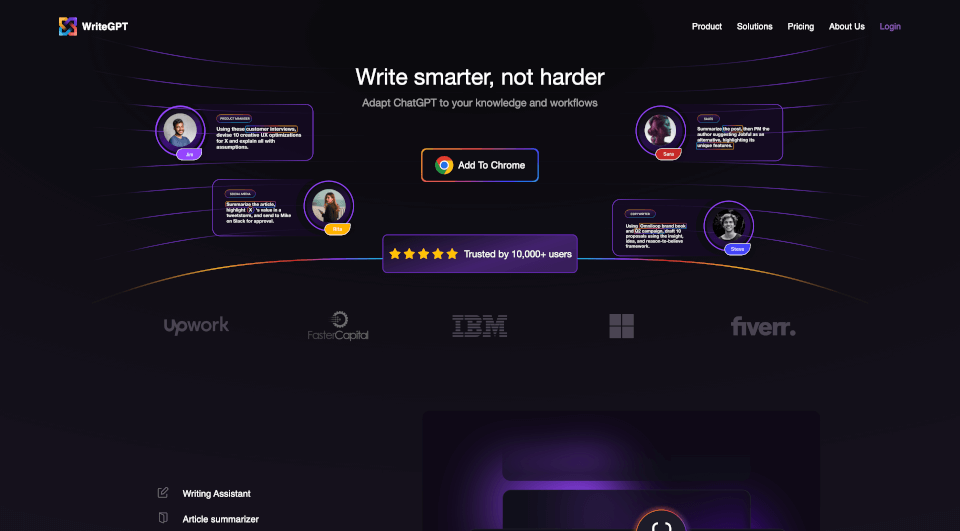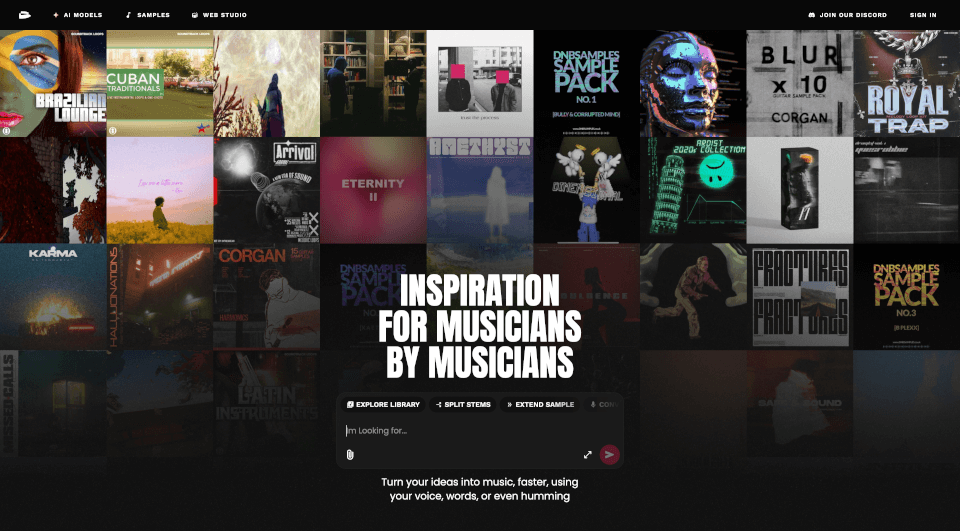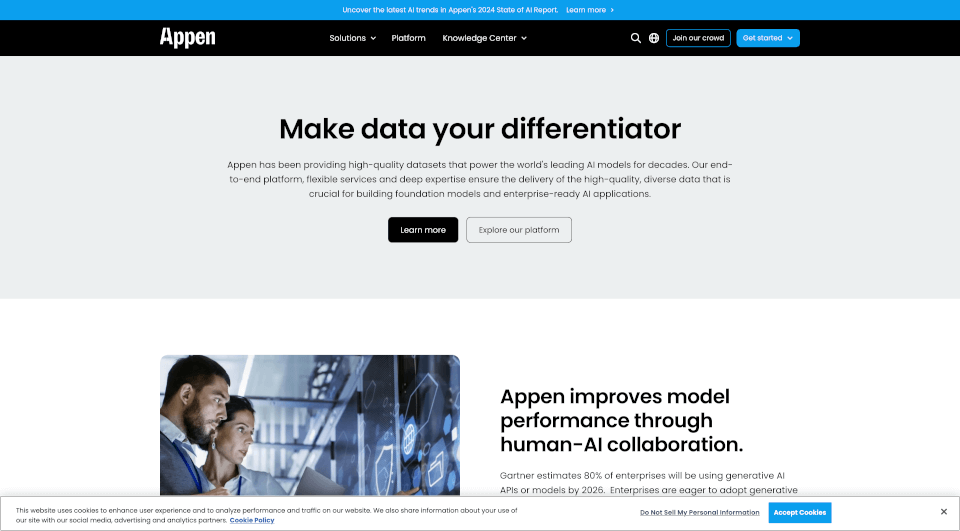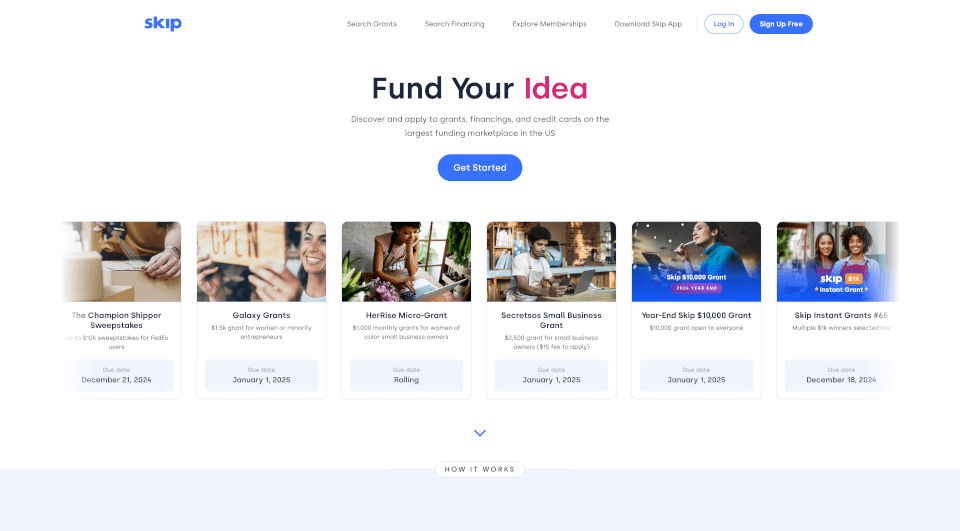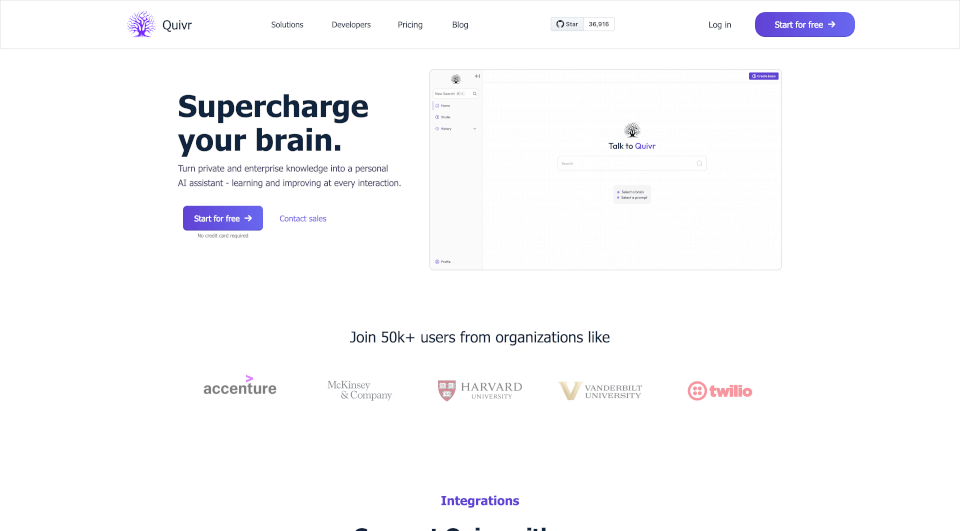What is OpenRouter?
OpenRouter is a unified interface for large language models (LLMs) that simplifies the process of finding the best models for varied use cases. With the aim of offering better prices, enhanced uptime, and no subscription requirements, OpenRouter facilitates seamless interactions with a diverse range of language models. It enables users to engage with models tailored for distinct applications, including roleplay, programming, marketing, technology, and more.
What are the features of OpenRouter?
OpenRouter comes loaded with features that cater to various needs:
- Diverse Model Selection: A broad spectrum of models is available with specific strengths, such as Gemini Flash 2.0, renowned for its faster time to first token and advanced multimodal understanding.
- Enhanced User Experience: The interface is designed to optimize user interaction by providing rankings and comparisons, ensuring users make informed decisions based on performance and price.
- No Subscription Model: Users can access models without the hassle of ongoing fees, making it budget-friendly, especially for developers and small businesses.
- Robust Performance: Models like Grok 2 offer advancements in accuracy and multilingual support, meeting the sophisticated demands of modern applications.
- Multimodal Capabilities: OpenRouter supports advanced models that can understand and generate not just text but also images and possibly other formats in the future.
What are the characteristics of OpenRouter?
OpenRouter features several key characteristics that set it apart:
- Ease of Use: The unified interface simplifies interaction with multiple models, making it accessible even to those without extensive technical backgrounds.
- High Availability: With a focus on better uptime, OpenRouter aims to provide reliable access to users, thereby fostering continuous workflows for developers.
- Roleplay and Creative Writing Support: Lumimaid, a model fine-tuned on roleplay data, exemplifies the platform's support for diverse creative needs, offering users a blend of structured and freeform interaction.
- Intelligent Steering: Models like Grok 2 are built for high steerability, allowing developers to tailor responses precisely to their requirements.
What are the use cases of OpenRouter?
OpenRouter is versatile and applicable in various scenarios:
- Roleplay and Gaming: Users can engage with characters in a more interactive manner, enhancing simulation experiences for players and storytellers alike.
- Coding Assistance: With models such as Cline, developers can access intelligent coding agents right within their integrated development environments (IDEs), streamlining the programming process.
- Marketing and SEO: Marketers can harness models tailored for SEO tasks, leveraging their capabilities for better content generation and audience targeting.
- Translation Services: OpenRouter supports multilingual functionalities, making it a suitable tool for businesses looking to expand into new markets.
- Health and Academia Applications: The platform can also cater to specific industries by providing insights and support for research and health-related inquiries.
How to use OpenRouter?
To get started with OpenRouter:
- Sign Up: Create an account on the OpenRouter platform to access the models.
- Select a Model: Browse through the available models and select one that matches your requirements.
- Input Your Prompts: Enter your queries or commands into the interface.
- Analyze Outputs: Review the responses generated by the model. Experiment with different prompts to optimize results.
- Integration: Integrate OpenRouter with your existing applications or processes to leverage its capabilities fully.
